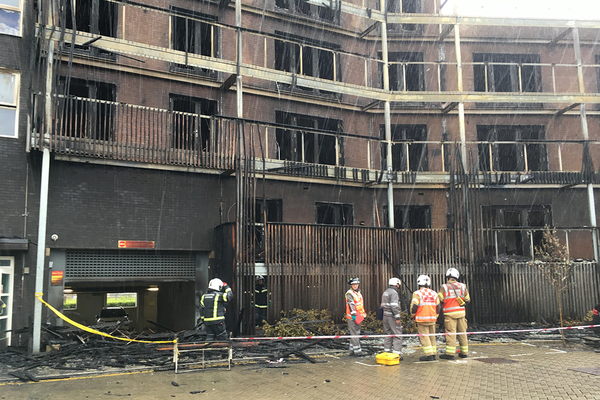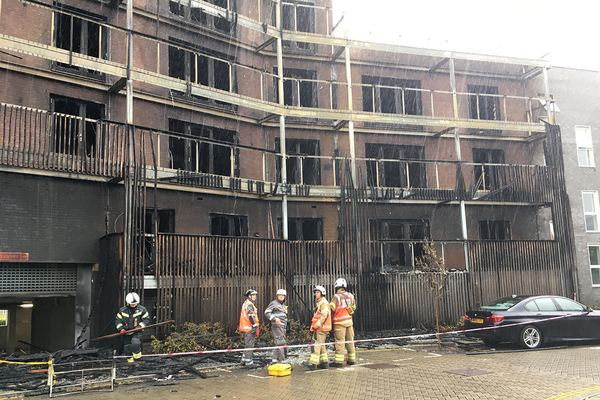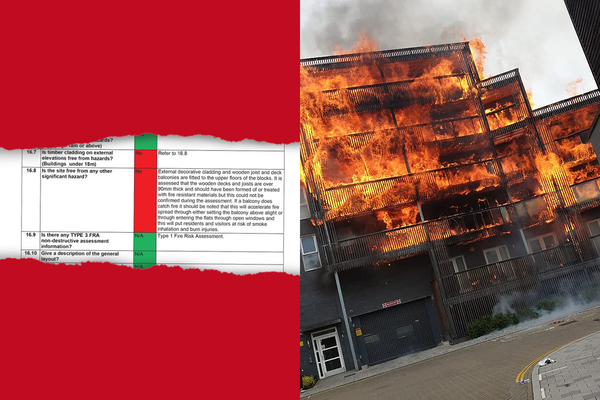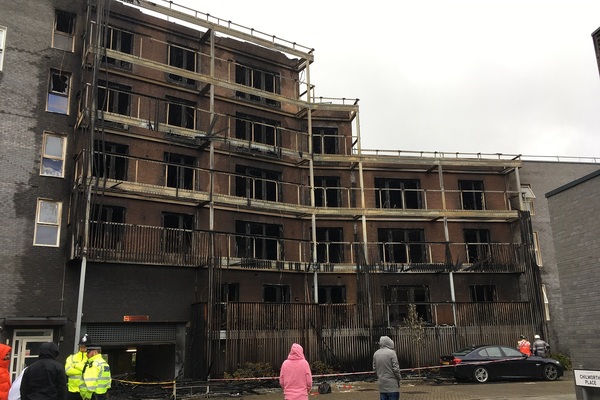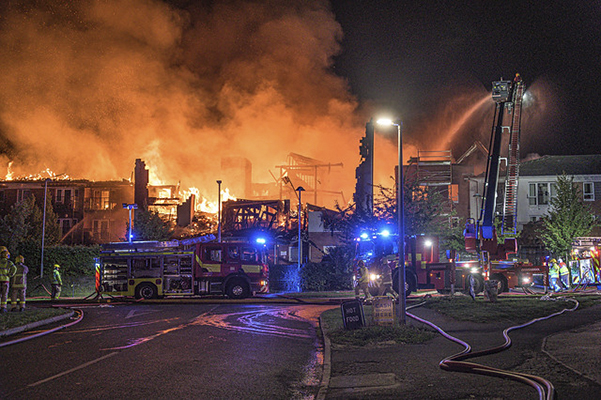Barking fire: displaced residents left ‘stressed’ after litany of rehousing issues
Residents displaced following a fire that ravaged a Barking development in June have said that they are “stressed” and have had to “put their lives on hold” due to a number of issues around their rehousing.
Inside Housing has spoken to residents who lived in the Samuel Garside House development on the Barking Riverside site in east London, who have been heavily critical of the rehousing process being run by the block’s manager.
Dozens of individuals and families are living in hotels and other temporary accommodation across east London and have yet to return to their homes since the fire damaged 47 flats two months ago.
The residents have become frustrated at repeated calls from HomeGround and RMG, the blocks managers, that the properties are fine to move back into despite the occupants’ safety fears. RMG is a subsidiary of housing association Places for People.
Residents have been unwilling to return to their properties due to concerns over the standard of the works carried out since the fire, and the resulting safety of the buildings.
Since the end of July, they have been given several revised dates for when funding for temporary accommodation would end, and when they would have to move back to the Samuel Garside House development.
It has also emerged that HomeGround and RMG have told residents to return to the two Samuel Garside House blocks – blocks C and D – worst affected by the fire, despite a Type 4 fire risk assessment having not yet been completed on these blocks.
A Type 4 fire risk assessment is the most detailed fire risk assessment and includes intrusive checks of the building’s interior. So far, only a Type 1 fire risk assessment has been carried out on blocks C and D, with the Type 4 assessment being carried out this week.
RMG and HomeGround said the safety and integrity of the buildings had been confirmed through independent peer-reviewed assessments. It added that while Type 4 risk assessments were being carried out, they were not needed for a building to be classified as safe.
Residents were initially told they would have to move back to their properties on 22 July.
Since then, the date has changed on a week-by-week basis. One resident currently living in a hotel told Inside Housing that they had been given three different dates in the space of three days for when funding would stop, something they said had caused “a huge amount of stress”.
Last week, the property manager confirmed its insurance company had now agreed to cover the costs of the temporary accommodation until 2 September, so RMG and HomeGround could consult with residents who still had concerns. However, in the letter to residents it said that the extension was not acceptance or acknowledgement by the insurance company that the individual properties were uninhabitable.
Some families have also been offered temporary accommodation at Lawley Mansions, a nearby property owned by housing association L&Q.
However, despite receiving keys for the properties nearly three weeks ago, many have yet to be handed furniture packs from RMG and HomeGround, meaning they are unable to move into the properties.
One resident Inside Housing spoke to was unable to move their family, including children, into the the property due to this and has had to find alternative accommodation.
RMG admitted that there had been “some logistical problems with furniture packs” due to timescales, but said these were being addressed.
Darren Rodwell, leader of Barking and Dagenham Council, and Sadiq Khan, the London mayor, have written a letter to Robert Jenrick, the new housing secretary, calling on him to fund the costs of temporary accommodation until residents feel ready to return.
The letter said: “We are sure you will agree with us that, as has been the case with similar crises elsewhere in England, the government should step in to underwrite the costs of temporary accommodation.”
A spokesperson for RMG and HomeGround said: “The safety and integrity of the buildings has been confirmed through independent, peer-reviewed, fire risk assessments as well as a separate structural engineer’s assessment.
“All residents with concerns have been offered individual walkarounds and inspections of the site with the relevant experts, to discuss any specific issues they have.
"The assessment process includes direct liaison with each resident but is subject to regular change as the surveyors’ recommendations regarding habitable status are updated daily. Timescales have had to remain flexible to enable those residents that wish to return home, to do so."The organisations involved in Samuel Garside House
Inside Housing has identified the key organisations involved in developing and managing Samuel Garside House:
Developer: Bellway
Architect: Sheppard Robson
Building owner (headlease): Adriatic Land
Freeholder of land: Greater London Authority/L&Q
Management: HomeGround, which appointed RMG (part of Places for People)
Building control: NHBC
Owner of affordable homes (32 of 80): Southern Housing Group

